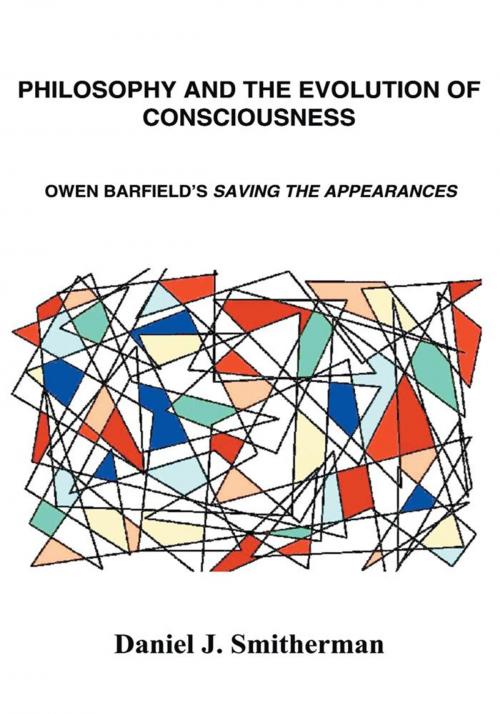Philosophy and the Evolution of Consciousness
Owen Barfield's Saving the Appearances
Nonfiction, Religion & Spirituality, Philosophy, Medieval, Existentialism, Modern| Author: | Daniel J. Smitherman | ISBN: | 9781469714240 |
| Publisher: | iUniverse | Publication: | January 29, 2001 |
| Imprint: | iUniverse | Language: | English |
| Author: | Daniel J. Smitherman |
| ISBN: | 9781469714240 |
| Publisher: | iUniverse |
| Publication: | January 29, 2001 |
| Imprint: | iUniverse |
| Language: | English |
The history of philosophy has been studied as if it were a long discussion between participants of differing opinions living in different ages, but all in the same world. Though Heraclitus and Descartes can no longer respond to new questions or current attacks on their positions, nevertheless, to the degree that we are all human, and all live in the same world, such questions and attacks are reasonably fair.
Until recently. In the last 50 years, the significance of the qualifier "to the degree that" has changed radically. What if it turns out that, as far as living in the same world goes, we today actually have very little in common with Heraclitus, or even Descartes? Then we are attempting to carry on discussions with participants who are not our contemporaries, and the world they were speculating about is not the same world we today are speculating about. Then the nature of the discussion - the history of philosophy - takes on a very different character.
Philosophy and the Evolution of Consciousness takes talk of "alternative conceptual schemes" current in philosophy today and applies it in the very place most likely to warrant the change: the history of philosophy itself.
The history of philosophy has been studied as if it were a long discussion between participants of differing opinions living in different ages, but all in the same world. Though Heraclitus and Descartes can no longer respond to new questions or current attacks on their positions, nevertheless, to the degree that we are all human, and all live in the same world, such questions and attacks are reasonably fair.
Until recently. In the last 50 years, the significance of the qualifier "to the degree that" has changed radically. What if it turns out that, as far as living in the same world goes, we today actually have very little in common with Heraclitus, or even Descartes? Then we are attempting to carry on discussions with participants who are not our contemporaries, and the world they were speculating about is not the same world we today are speculating about. Then the nature of the discussion - the history of philosophy - takes on a very different character.
Philosophy and the Evolution of Consciousness takes talk of "alternative conceptual schemes" current in philosophy today and applies it in the very place most likely to warrant the change: the history of philosophy itself.















